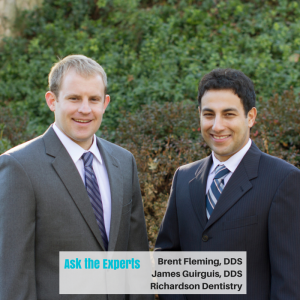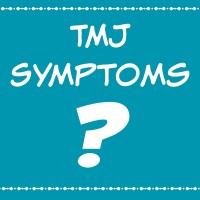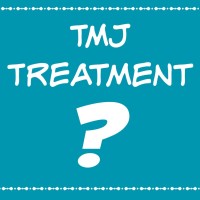This post has been sponsored by Richardson Dentistry. All opinions are 100% our own!
Stress. It definitely has its place in my life. My Type-A personality combined with my drive to always be going, going, going doesn’t always lead me to be the most relaxed person. That’s why it doesn’t surprise me when my stress and high anxiety led me to developed a common disorder almost 10 years ago.
I was newly married, living with my husband for the first time in a new apartment, finishing my year of student teaching, and about to pursue positions in districts across Dallas. Looking back now that I’m a mom of 2 (almost 3), even all of that seems like a “walk in the park”, but at the time created a lot of intense situations and stress!
I remember there were several nights my sweet, newlywed husband would nudge me awake and ask if I’ve grinding my jaw when I slept was common. Of course I had no idea what he was talking about…but I’d also never kept microphone next to my bed! Within a few months, I noticed my jaw would be sore when I woke up the next morning. I also noticed a strange clicking noise that would happen when I ate.. Eating foods like steak, corn on the cob, or even chewing gum became difficult because I could tell it was doing “something” to my jaw; I just didn’t know what.
Almost a year later, the locking began and that’s when I became concerned. When my head was tilted in certain positions, my mouth would actually lock. I couldn’t close my jaw completely without severe pain and other times I couldn’t open it at all. When it began to happen more frequently, I knew it was time to see a professional.
My tempromandibular joint (TMJ) had developed Tempromandibular Disorder (TMD). The stress I’d put on myself over the last few years had resulted in a weakening of my jaw joint from grinding and clenching my teeth and tightening my facial muscles.
With the help of a doctor, I was prescribed a nightguard to help with the grinding and an over-the-counter medication to help relieve muscle tension in moments when I felt my jaw would tighten. Within 6 months, my symptoms began to lessen and my TMD began to disappear.
 You might be familiar with Drs. Brent Fleming, DDS & James Guirguis, DDS. They’re the doctors behind the Richardson Dentistry practice in Richardson (Belt Line & Plano Road) and members of the American Dental Association, Texas Dental Association, and Academy of General Dentistry. Our guests who attended the DFW Moms Night Out at the Richardson Mercantile had the chance to meet them in person and get their general dentistry questions answered!
You might be familiar with Drs. Brent Fleming, DDS & James Guirguis, DDS. They’re the doctors behind the Richardson Dentistry practice in Richardson (Belt Line & Plano Road) and members of the American Dental Association, Texas Dental Association, and Academy of General Dentistry. Our guests who attended the DFW Moms Night Out at the Richardson Mercantile had the chance to meet them in person and get their general dentistry questions answered!
While they weren’t my doctors during the time my TMJ flared, I was glad to sit down with them and ask some questions about this common disorder that would be helpful to me now that I’m a mom. (For example, you can imagine my relief to find out that it’s not found to be hereditary!)
 We know that TMD is problem with your “jaw joint”, but what are some of the most common reasons a person would develop TMD? And what symptoms should the look for?
We know that TMD is problem with your “jaw joint”, but what are some of the most common reasons a person would develop TMD? And what symptoms should the look for?
There are a number of reasons that TMD (Tempromandibular Disorder) can develop. Basically, there are two types of TMD discomfort and dysfunction, muscular and joint. Muscular TMD involves the muscles of chewing. These can become painful from overuse (chewing gum, grinding or clenching, etc) and can become uncomfortable even in normal activities such as speaking, chewing or biting. Patients with this type of TMD can feel acute facial pain, sometimes associated with the muscles and sometimes referred to other areas of the mouth and face. TMD of the joint is typically more complicated and the pain tends to center near the ear on the affected side. Patients will sometimes notice a clicking or popping of the affected joint or may feel as though they cannot open normally or as wide as they usually can.
The cause of this type of TMD is sometimes a mystery and it can be more difficult to treat. Any of these symptoms should prompt you to have an evaluation by your dentist to diagnose the type of TMD and the proper treatment.
Are there any behaviors a parent should be aware of in their children (or themselves) that might lead to TMD in your joint?
It is extremely difficult to pre diagnose any children as to their likelihood of developing TMJ disorders as an adult. As children grow and develop, their occlusion (bite) will dramatically change as will their facial muscles. There is some fairly new research being presented that relates pediatric bruxism (grinding) with enlarged adenoids and difficulty breathing at night. If parents are considered about their children’s nightime clenching/grinding, they should consult with their child’s dentist who may recommend a visit to a pediatric ENT.
Are there any exercises that can be done at home or over-the-counter medications or vitamins that would help lessen the discomforts of the TMJ once diagnosed?
The initial treament for a muscular TMD is often to use OTC medications that have an anti-inflammatory effect such as Motrin in combination with warm, moist heat applied on the affected muscle 3-4 times a day. Additionally, stretching of the muscles can also help to relieve discomfort/pain associated with this type of TMD. However, it is important to first see a dentist to determine that your TMD is from muscles and not the joint itself, prior to starting any treatment.
 Depending on the diagnosis, what are some of the treatment options you’re able to do at your practice to help relieve the discomfort of the TMJ?
Depending on the diagnosis, what are some of the treatment options you’re able to do at your practice to help relieve the discomfort of the TMJ?
Treatment options can range from rest and anti-imflammatory medication all the way to surgery in very extreme cases. 99% of the cases that present in our office can be treated with OTC medication and fabrication of a custom occlusal (bite) splint. This appliance can be worn during the day, but most often at night, by the patient to help relieve the acute facial pain associated with most TMJ disorders. It places the joints and muscles into a more comfortable position and prohibits the muscles from becoming hyperactive and painful.
It’s been almost 9 years and my TMD has never returned thanks to the professional help I received during that time. If you’re experiencing similar symptoms and you’d like to learn more about treatment options for TMD, contact the staff at Richardson Dentistry in Richardson. Located near Belt Line & Plano Road, Dr. Fleming & Dr. Guirguis will help you and your children feel comfortable at every dental checkup.
Visit their website at RichardsonDentistry.com or contact them at 972.690.8617 for more on pediatric, cosmetic, and general dentistry information!
Disclosure: This post was sponsored by Richardson Dentistry –Dallas Moms Blog’s Co-Title Sponsors at DFW Moms Night Out. All opinions are 100% our own!













